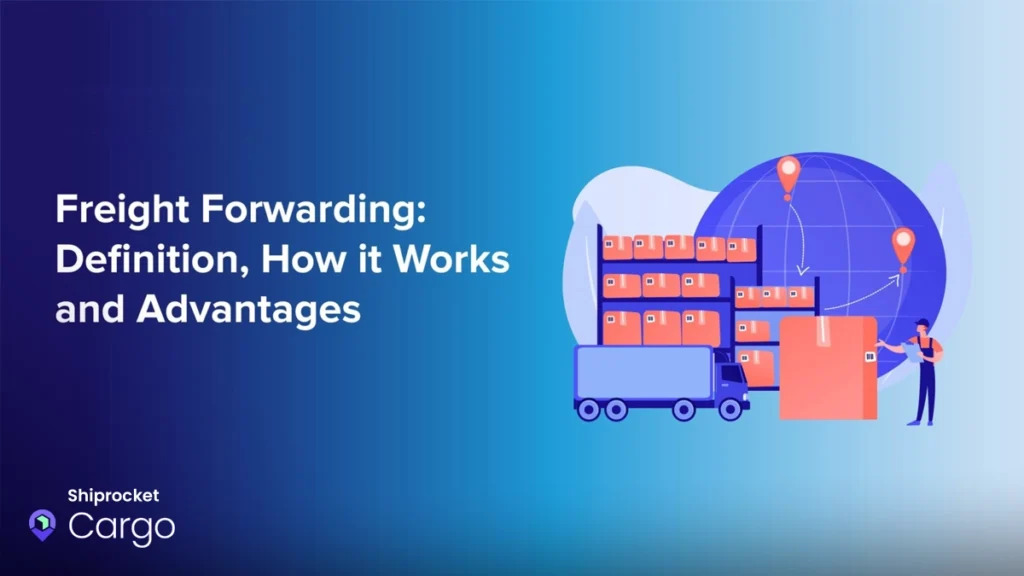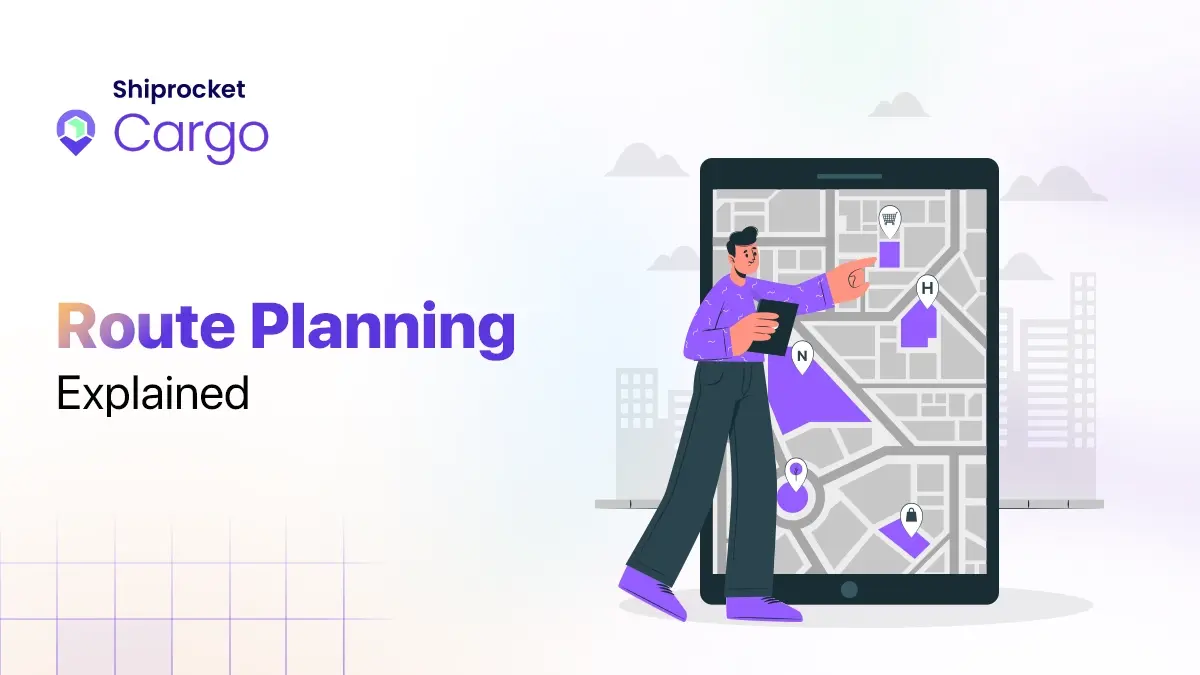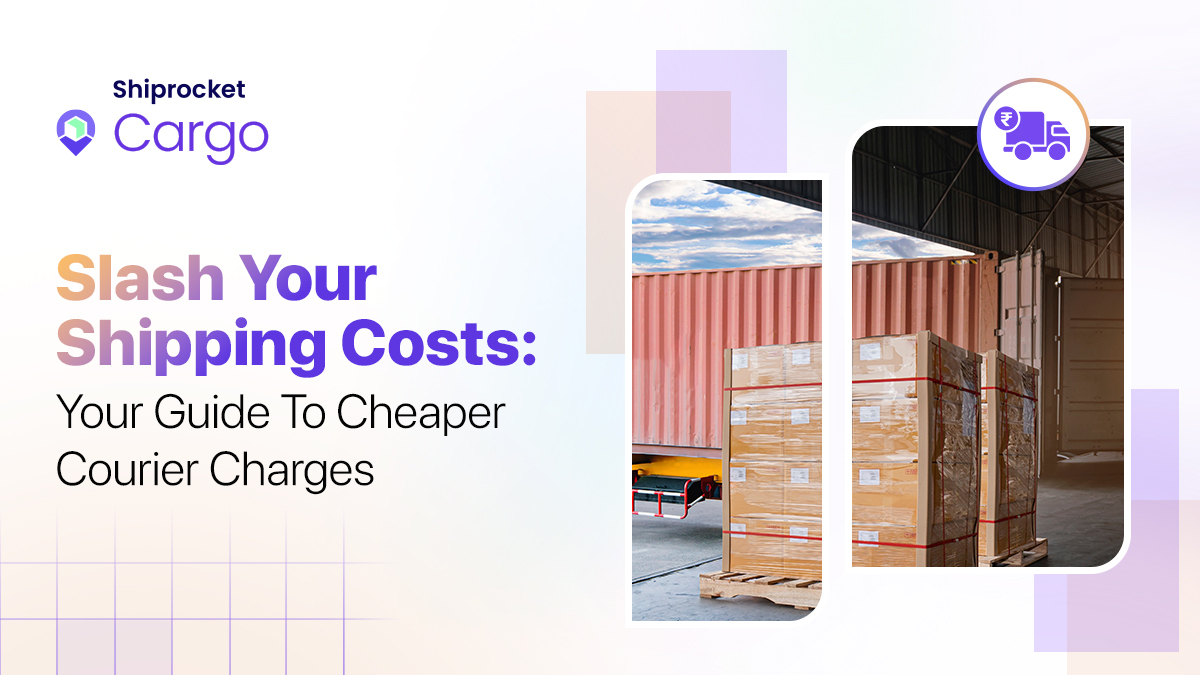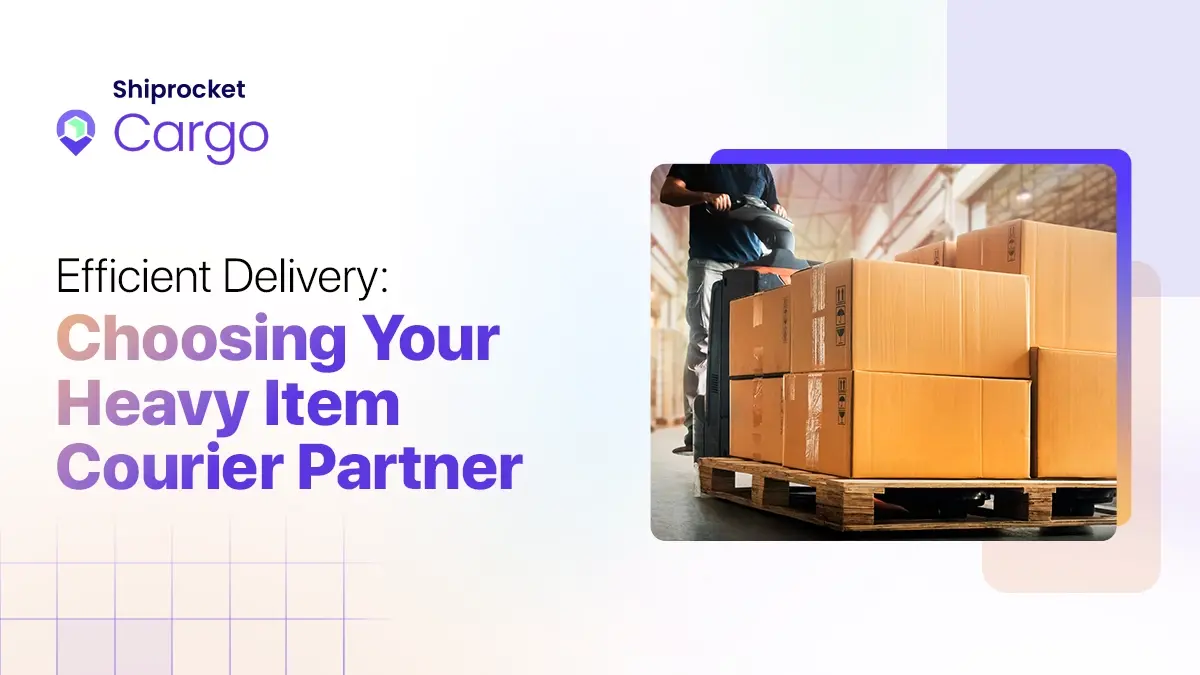A Walkthrough of Freight Forwarding: Definition, How it Works, and Advantages

The logistics industry in India is a crucial contributor to the country’s economy and plays a vital role in the smooth functioning of businesses of all sizes. B2B (business-to-business) logistics refers to the movement of goods from one business to another and is a crucial aspect of the logistics industry in India.
With every passing year, eCommerce expansion, growing D2C culture, and rising internet penetration have propelled the business to expand its production and delivery rate. As a result, the B2B logistics market has witnessed significant growth in recent years. As per Mckinsey Global Institute, the B2B logistics market is expected to reach $320 billion by the end of 2025.
One of the critical factors that are propelling the B2B logistics market in India is freight forwarding. So what is freight forwarding, how it works, and what are the benefits it offers to businesses? Let’s have a look.
Sign up if you are looking for bulk shipping service providers?
What is Freight Forwarding, and How does it Work?
Freight forwarding is a service that helps individuals and businesses to arrange the transport and delivery of goods from one location to another. It involves coordinating the movement of goods from the manufacturer or supplier to the final destination and taking care of customs clearance and other necessary documentation. Freight forwarding companies provide various services, including air and sea freight, road and rail transport, warehousing and distribution, and door-to-door delivery.
The freight forwarding process begins when a customer contacts a freight forwarder and requests a quote for shipping goods to a specific destination. The freight forwarder will then assess the type and size of the goods, the mode of transport, and the distance to be traveled and provide the customer with a price estimate. If the customer agrees to the terms, the freight forwarder will begin arranging the transport and delivery of the goods.
What is the Role of Freight Forwarding?
One of the critical roles of a freight forwarder is handling the documentation and paperwork required for transporting and delivering goods. This includes customs declarations, commercial invoices, and other documents required by governments and regulatory bodies. The freight forwarder will also ensure that the goods are shipped according to the applicable laws and regulations and will handle any issues that may arise during the transport process.
Depending on the customer’s needs, there are several different types of freight forwarding services available. For example, some companies offer air freight services for time-sensitive shipments, while others specialize in sea freight for large or heavy shipments. Some companies provide a combination of air, sea, and land transport services and warehousing and distribution services.
What are the Stages of Freight Forwarding?
Freight forwarding typically involves the following stages:
Consultation
The freight forwarding service provider meets with the client to discuss their shipping needs and requirements, including the type and volume of goods being shipped, the destination, and any special handling or regulatory requirements.
Quotation
The freight forwarding service provider provides the client with a quote for the shipping services, including the cost of transportation and any additional fees or charges.
Booking
If the client decides to use the freight forwarder’s services, the forwarder will book the transportation and make any necessary arrangements, such as securing a space on a vessel or aircraft.
Documentation
The freight forwarder will handle the preparation and submission of any required documentation, such as customs forms, bills of lading, and commercial invoices.
Shipment
The freight forwarder will oversee the pickup and transportation of the goods, coordinating with carriers and other service providers as needed.
Tracking
The freight forwarder will provide real-time tracking of the shipment and updates on its progress.
Delivery
The freight forwarder will arrange for the delivery of the goods to the final destination and handle any necessary customs clearance and other regulatory processes.
Invoice
The freight forwarder will provide the client with an invoice for the shipping services.
What are the Benefits of Freight Forwarding in B2B Logistics?
Freight forwarding is a crucial logistics component for many businesses, particularly those that engage in international trade or ship large volumes of goods. Here are some specific benefits of using freight forwarding services for B2B logistics:
Cost Savings
The freight forwarding companies have established relationships with carriers and can negotiate better rates for their clients. They can also provide cost-effective solutions by consolidating shipments and finding the most efficient routes. This can be especially beneficial for B2B businesses that ship large volumes of goods, as the savings can add up quickly.
Expertise
Freight forwarding service providers are logistics experts and deeply understand the regulations, documentation, and processes involved in transporting goods. They can handle the complexities of international shipping and help clients navigate customs and other regulatory issues. This can be a significant advantage for B2B businesses that may need more resources or in-house expertise to handle these tasks.
Time Savings
Freight shipping service providers can handle the entire shipping process, allowing B2B clients to focus on their core business operations. They can also provide real-time tracking of shipments and updates on their progress, which can be especially important for businesses that need to meet tight deadlines or have strict delivery requirements.
Risk Management
Freight forwarders can provide insurance and other risk management services to protect B2B clients’ goods during transportation. This can be especially important for businesses shipping high-value or fragile items.
Flexibility
Freight forwarding companies offer a range of transportation options, including air, sea, and ground, and can tailor their services to meet the specific needs of their B2B clients. This can be especially useful for businesses with unique shipping requirements or who need to adapt to changing market conditions.
Conclusion
Freight forwarding has become an effective way to ship bulk shipments to large distances businesses. Several freight forwarding companies, such as Shiprocket Cargo, help businesses ship their shipments. The company’s freight forwarding is a valuable service that helps individuals and businesses to transport and deliver their goods safely and efficiently. It offers a range of benefits, including convenience, cost savings, and peace of mind, and is an essential part of the global supply chain.
If you are looking for a perfect B2B shipping service provide, look no further, connect with us.
FAQs
What is freight forwarding, and do I need It?
Freight forwarding is a process in which a company organizes the transportation of goods from one place to another for its clients. It can help businesses streamline their logistics operations and ship the products to greater distances.
What are the benefits of using a freight forwarder?
Freight forwarders can help businesses save time, money, and resources, and provide peace of mind knowing that their goods are in the hands of experts.
What are the stages of freight forwarding?
The typical freight forwarding process involves 8 stages, which are; consultation, quotation, booking, documentation, shipment, tracking, delivery, and invoice.



